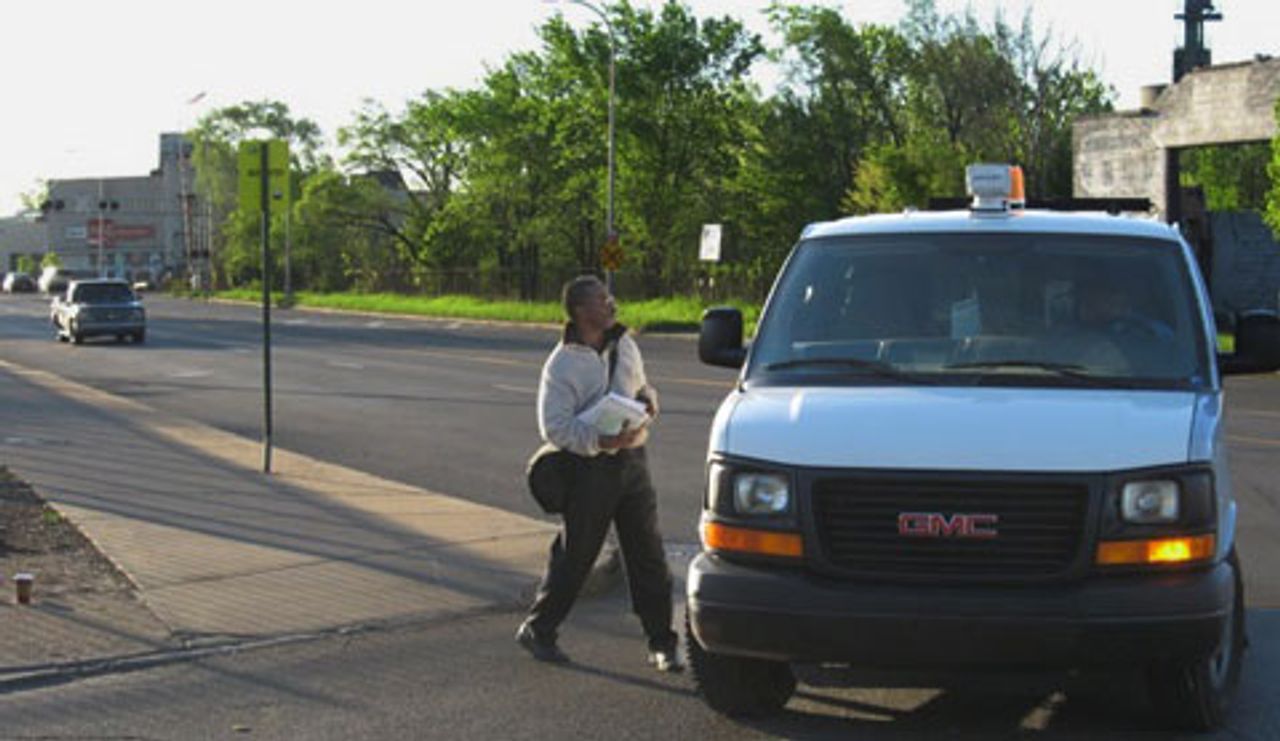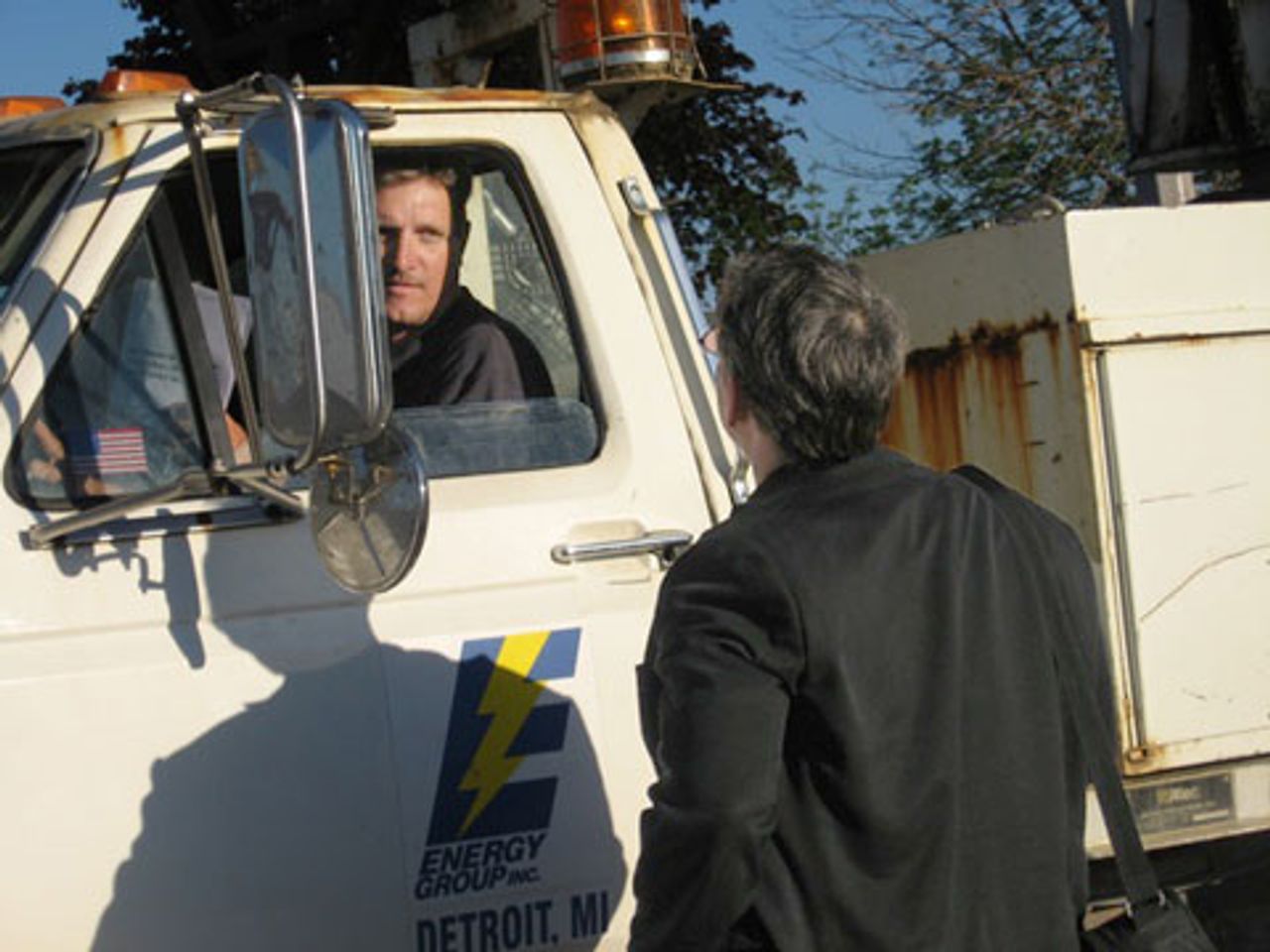At a meeting in Detroit last week, workers and young people voted to establish the Committee Against Utility Shutoffs (CAUS) to take forward the work initiated by the Citizens Inquiry into the Dexter Avenue Fire: Utility Shutoffs and the Social Crisis in Detroit. The Citizens Inquiry was launched by the Socialist Equality Party after a series of deadly house fires in Detroit that were the result of the shutoff of gas and electrical service by the local utility monopoly, DTE Energy.
Nearly a dozen people have been killed in utility-related fires since the beginning of the year, including two disabled brothers and their friend in a January 5 fire on Dexter Avenue, and three children, ages 3-5, in a March 2 fire on Bangor Street.
On April 13, the commissioners of the inquiry issued their findings, indicting the energy giant for these and other deaths and demanding that the company’s top executives and government regulators be held accountable. (See “Findings of the Inquiry”)
The commissioners also called on DTE workers to refuse to comply with company orders to shut off utility service and recommended actions—including the launching of a public works program in the city and the nationalization of the energy industry—to end poverty and guarantee gas and electricity as a human right.
On April 29, workers and young people, including a Detroit teacher and a young mother facing thousands of dollars in past due bills, attended a meeting on Dexter Avenue, only a short distance from the January 2 fire. A discussion was held on the findings and political issues facing the working class.
Larry Porter, the chairman of the Citizens Inquiry, explained that the fight against DTE was a fight against the politicians in both big business parties and the capitalist system as a whole, which subordinates every aspect of life—including the right to life itself—to the profit interests of corporate executives and Wall Street investors.
This was an international phenomenon, Porter said. Just as Obama was demanding that workers in the Detroit area and throughout the US pay for the bailout of the Wall Street banks so were governments in Greece, Spain and every other country. The so-called recovery, he said, was a recovery of profits for the wealthy at the direct expense of the working class. He noted that despite the deep recession in Michigan, DTE’s profits had jumped 29 percent in the first quarter, based on recent rate hikes and a cost-cutting campaign aimed at its own workers.
One of those attending, Lisa, said she had confronted a DTE worker in her neighborhood who was about to shut off someone’s service. “I handed him the material and told him that shutoffs were killing people. Every time someone sees a DTE worker in the neighborhood they should give them the findings,” she said.
The committee voted to call itself the Committee Against Utility Shutoffs (CAUS) and make the initial focus of its work distributing the findings to the widest possible audience in the Detroit area. This included those paying their bills to DTE, firefighters, high school students, auto workers and others. It was also noted that DTE was increasing the number of shutoffs now that winter was over.
The committee voted to make a special appeal to DTE workers by issuing a statement to be distributed at work locations.
On Wednesday morning, CAUS members gave out the statement to workers at a west side service facility. The leaflet drew a connection between the utility shutoffs and the demands for job cuts and concessions the company was seeking. The workers are facing concessions demands when their contract expires next month, and the union, the Utility Workers Union of America Local 223, has a long history of accepting job cuts and concessions in the name of labor-management “partnership.”
 Larry Porter speaking to DTE worker
Larry Porter speaking to DTE workerThe statement provoked an immediate reaction. The majority of workers took the statement and indicated that they would seriously consider the issues it raised, with several expressing strong agreement with a campaign to oppose shutoffs.
A minority of workers and lower managers, however, vocally defended the company’s practice and echoed management’s claims that the fire victims were responsible for their own deaths because they were “stealing electricity” from the company. One insisted that DTE had to make a profit, suggesting that workers’ jobs and living standards were dependent on the company disconnecting service to those who could not pay.
The CAUS members answered these claims, pointing to the fact, as the leaflet explained, that it wasn’t “ordinary employees who benefit from milking the population of Detroit but the corporate executives, like CEO Anthony Earley Jr., who pocketed $10 million last year.” Moreover, in order to boost its profits the company was demanding huge concessions from utility workers and imperiling their lives through maintenance cutbacks and speedups.
 Speaking to a DTE contract worker
Speaking to a DTE contract workerThe utility giant, the CAUS members argued, should be nationalized so that the provision of electricity and gas would not be dependent on the enrichment of corporate executives and Wall Street investors but guaranteed to all as a basic human right.
One worker who was initially ambivalent took the leaflet once it was pointed out that DTE had laid off 1,200 workers over the last few years, and that anyone losing their job could face the prospect of having their utilities shut off.
Insofar as the comments of a few workers reflected the company line, this is chiefly the responsibility of the unions, including the Utility Workers union, which promotes the lie that workers have the same interests of the corporate owners. This serves to drive a wedge between utility workers and ordinary workers in Detroit. Increasingly, however, workers can see they are just one paycheck away from the same fate.
One retired DTE worker pulled her car over and asked for a stack of leaflets. She said she strongly disagreed with utility shutoffs and said she would distribute the leaflet and the findings to workers she knew and friends.
The committee, which meets every two weeks in Detroit, is planning an aggressive campaign to reach the working class in the coming weeks and months.
Mary Kelly told the WSWS that she joined CAUS because of the terrible impact the high utility bills are having on families. “I’m tired of looking at the television and seeing the fires that are taking place and killing people, especially children, because they lost their utilities,” Mary said.
She was especially incensed at claims that people don’t want to pay their utility bills. “The bills are just too high and people can’t afford to pay it,” stated Mary, who is unemployed.
“And the jobs are gone,” Mary added. “What are people supposed to do? They have to eat. They have to pay a house note or rent, but the utility costs are as high as the rent. You can’t live without a job.”
Sylvia Young, the 32-year-old single mother who lost three children in the Bangor Street fire, urged workers and youth to join the committee and take up this fight. “It’s good that somebody is finally taking a stand and fighting for a cause. What DTE is doing is killing people. People out there who are being cut off of utilities will have their backbones strengthened when they see that someone is fighting. That’s what happened to me. I was alone facing this huge company, the police and the courts. I appreciate the help that the Citizens Inquiry gave me.
“The more people read and keep up with this story, the more they are going to stand up for their rights. If the working class doesn’t stand up, no one is going to stand up for us. This should be a cause for the whole working class because the recession is making it harder and harder to live.
“If we don’t fight, next winter there are going to be more deaths,” she added. “How many more Sylvia Youngs are there going to be? How many mothers are going to lose their children over a gas or light bill?
“I urge you to join the committee and stand up with us to fight for your rights.”
To contact CAUS call: 313-915-4541 or contact us here.
Read about the campaign at: http://www.socialequality.com/dexterinquiry
